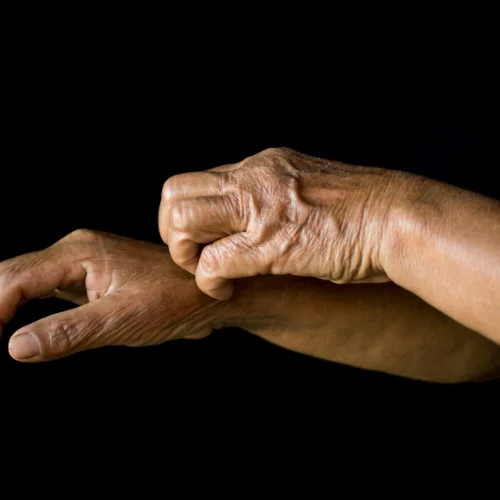Can Dementia Cause Itching?
Dementia is a condition that affects the brain, causing memory loss and changes in behavior. While we often associate it with cognitive decline, there’s more to dementia than meets the eye. One puzzling aspect is the connection between dementia and itching. In this blog post, I will discuss the reasons behind why people with dementia might experience itching and scratching, unraveling the mystery for caregivers and family members.
What does the Research say?
In this study conducted by the Chitofuna Dermatology Clinic in Tokyo, Japan, researchers wanted to understand how common itching, also known as pruritus, is among elderly individuals with dementia. They surveyed 185 Japanese patients, all of whom were elderly and had varying degrees of dementia, ranging from mild to severe.
The researchers used different methods to figure out if these patients were experiencing itchiness. They asked the patients themselves to rate whether they felt itchy, and interestingly, about 36.8% of them said they were suffering from itch. However, when the researchers observed the patients’ behavior and checked for scratch marks on their bodies, they found that a higher percentage, 53.5%, were actually scratching.
Even among those who claimed they didn’t feel itchy, 31.4% were caught scratching. The study discovered that 74.1% of the patients had dry skin, and the severity of this dryness was linked to the intensity of scratching behavior and the presence of scratch marks.
So, what does this all mean? Well, it suggests that a lot of elderly individuals with dementia might be experiencing itchiness even if they don’t realize it or admit to it. The study emphasizes that relying solely on what patients say about their itchiness may not be enough. Instead, doctors should also look at other clues, like scratching behavior and marks on the skin.
In practical terms, it’s like someone saying they’re not hungry but you notice them snacking away – actions speak louder than words. In the case of dementia patients, taking care of their skin by using moisturizers might be a crucial part of managing itchiness. It’s like giving them a snack for their skin to keep it comfortable and reduce the need to scratch.
The Basics of Dementia and Its Impact on Behavior
Dementia is like a fog that clouds the mind. It affects memory, thinking, and the ability to perform everyday activities. Alzheimer’s disease is the most common form of dementia. As the condition progresses, individuals may exhibit changes in behavior that can be challenging for both the affected person and those around them.
Scratching the Surface – Understanding Itching in Dementia

People with dementia, particularly Alzheimer’s disease, may experience itching and engage in constant scratching or picking at their skin. It’s crucial to note that this behavior is not simply a quirk; it often stems from an underlying cause. Since individuals with dementia may struggle to communicate their discomfort, caregivers need to be vigilant in identifying the root of the issue.
Dry Skin – A Common Culprit
One of the primary reasons behind the itching associated with dementia is dry skin. Imagine your skin feeling tight and parched – an uncomfortable sensation that anyone can relate to. Individuals with dementia may have difficulty expressing this discomfort verbally, leading them to resort to scratching as a way of coping.
The Dementia-Dry Skin Connection
As dementia progresses, the body undergoes various changes, and the skin is no exception. Dry skin becomes a common occurrence, exacerbating the itchiness experienced by those with dementia. Reduced hydration, changes in skin elasticity, and impaired oil production contribute to this discomfort.
Lack of Communication
One of the challenges faced by individuals with dementia is the diminishing ability to communicate effectively. Verbalizing sensations, such as itching or dryness, becomes increasingly difficult. This communication barrier makes it imperative for caregivers to pay close attention to behavioral cues and non-verbal signals.
The Role of Cognitive Impairment
The cognitive decline associated with dementia plays a significant role in the manifestation of itching. Individuals may not remember to moisturize or may forget the sensation of thirst, leading to dehydration and subsequent dry skin. These cognitive challenges contribute to a cycle of discomfort that can be alleviated with attentive care.
Solutions for Alleviating Itching in Individuals with Dementia

Understanding the link between dementia and itching is only the first step. Caregivers play a crucial role in providing relief and improving the quality of life for individuals with dementia. Here are some practical solutions:
Regular Moisturization: Applying a gentle, fragrance-free moisturizer regularly can help combat dry skin and reduce itching. Caregivers should incorporate this into their daily care routine.
Hydration: Encouraging and ensuring an adequate intake of fluids is essential. Individuals with dementia may forget to drink water, so caregivers should monitor and prompt hydration.
Comfortable Clothing: Choosing soft, breathable fabrics for clothing can minimize irritation on the skin. Avoiding tight or scratchy materials contributes to overall comfort.
Maintaining a Consistent Routine: Establishing a routine for personal care, including moisturization, can provide a sense of predictability and comfort for individuals with dementia.
When to Seek Help From a Doctor?
While dry skin is a common cause of itching in individuals with dementia, it’s essential to rule out other potential issues. If the itching persists or worsens, seeking professional medical advice is crucial. A healthcare provider can assess the individual’s overall health and recommend appropriate interventions, ensuring comprehensive care.
Conclusion
In the complex landscape of dementia, understanding the connection between the condition and itching provides valuable insights for caregivers and family members. Recognizing the impact of cognitive decline, dry skin, and communication barriers allows for more effective care strategies. By addressing the root causes and implementing practical solutions, caregivers can enhance the well-being of individuals with dementia, offering them comfort and support in their journey.
